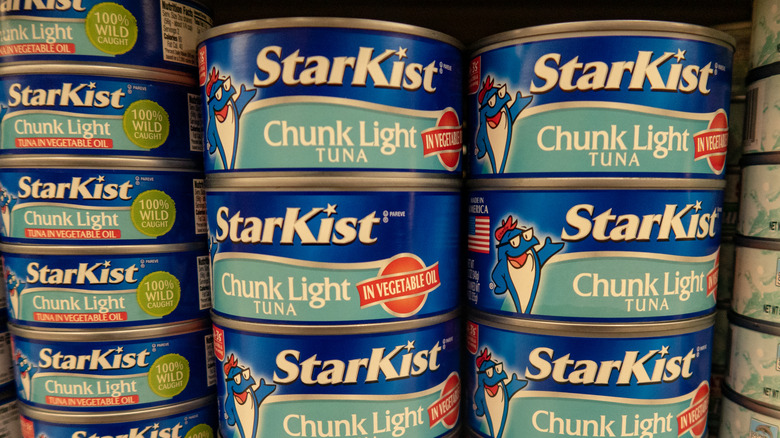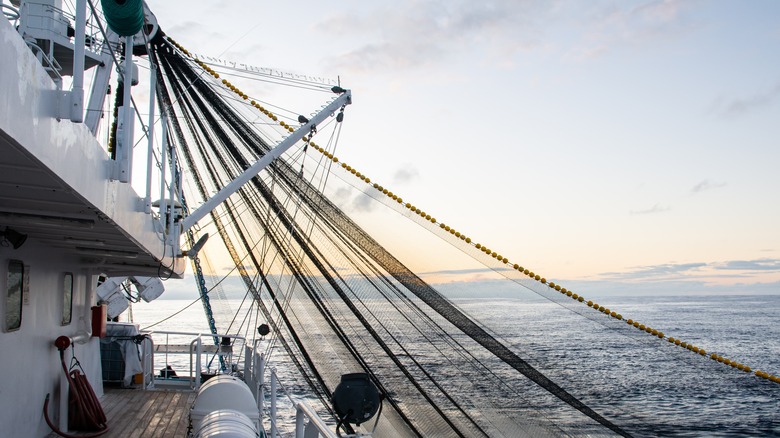The Tuna Council Is The Voice Behind Your Canned Fish
Americans absolutely love canned tuna — whether it is used in sandwiches, salads, or casseroles — and it's so popular that it has become a standard food item in most households. The numbers behind our crazed consumption of this fish are jaw-dropping. According to The National Fisheries Institute, Americans eat around 1 billion pounds of canned and pouched tuna annually, second only to shrimp. The demand is driven partly because it is a fast and convenient food for our busy lives, but also due to its health benefits — low in calories and packed with protein and omega-3 fatty acids.
To satisfy such significant demand, there are huge fishing and processing operations controlled by the largest tuna can producers. In recent times there has been a growing awareness and legitimate concern regarding how we source our food and its sustainability, especially when it comes to our oceans and fishing methods, per Seafood Source. The bottom line is that the public needs assurance that what we are consuming is not detrimental to the planet and environment. To be a more educated consumer when it comes to tuna, it is worth understanding the history and purpose of the National Fisheries Tuna Council overseeing the industry.
Keeping tuna on track
Most of us are familiar with the names of the largest tuna processors — Bumble Bee, Chicken of the Sea, and StarKist. These large producers are represented by the Tuna Council, which serves as the entire industry's spokesman for food safety and sustainability (via National Fisheries Institute). To ensure that our oceans are fished responsibly, with minimal impact on marine life, the Tuna Council coordinates efforts alongside large producers and organizations like the International Seafood Sustainability Foundation. On the Tuna Council's website, valuable information is provided on the various tuna species, fishing practices, and dietary recommendations.
Despite these efforts, the industry has been tainted with corrupt practices by the producers: Between 2010 and 2013, tuna can prices were kept artificially high, despite changes in supply and demand, and an investigation revealed that the three largest producers coordinated together in a price-fixing conspiracy (per The Hustle). In 2017, formal charges were brought against the highest executives who received prison sentences, and the companies themselves were hit with huge fines: Starkist alone faces a fine of $100 million (via The New York Times).
Despite this major industry shake-up — one that goes into the history books as one of the biggest corporate scandals — the Tuna Council still remains the voice of the industry. Time will tell if they are able to save the face of the industry and win back the confidence of the consumers.

